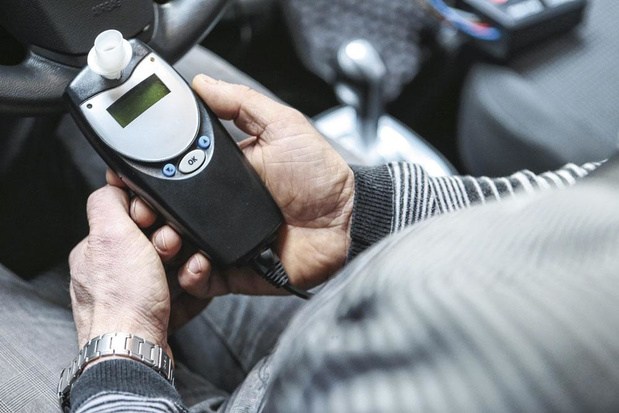The number of alcohol locks imposed by the Belgian courts has increased significantly in the last two years, judging by figures provided by Federal Mobility Minister François Bellot.
Drivers must blow into the lock and have less than 0.2 per mille blood alcohol content to be able to start the car. The lock will ask the driver to blow again at various times to avoid fraud.
On 1 July 2018, the law around alcohol locks became more strict. Judges have to impose an alocolock on drivers who were caught with a blood alcohol content of 1.8 per mille or more, with a 1.2 per mille limit for repeat offenders. The court can impose such a lock for a period of one to three years, or for life.
Related News
- Belgian border police caught drinking on the job
- Over 2,000 Brussels motorists caught driving while drunk or drugged in 2019
In the four years before the new law, the number of imposed alcolocks fluctuated between 9 and 23. The new law meant that 167 alcolocks were imposed on drivers in 2019, and the first two months of 2020 have already seen 88 cases.
Most of these locks were imposed in Flanders, followed by Wallonia, with Brussels in third place. No less than 139 drivers got alcolocks imposed in Flanders, with Antwerp province accounting for well over half, followed by West Flanders and Flemish Brabant. Most of the alcolocks in Wallonia were imposed in the province of Liège.
Alcohol plays a part in a quarter of fatal accidents on Belgian roads, with an average of two deaths per week in Flanders alone. Also, an average of 11 accidents with physical injury happen every day in Belgium with a driver above the legal limit.
The Brussels Times

